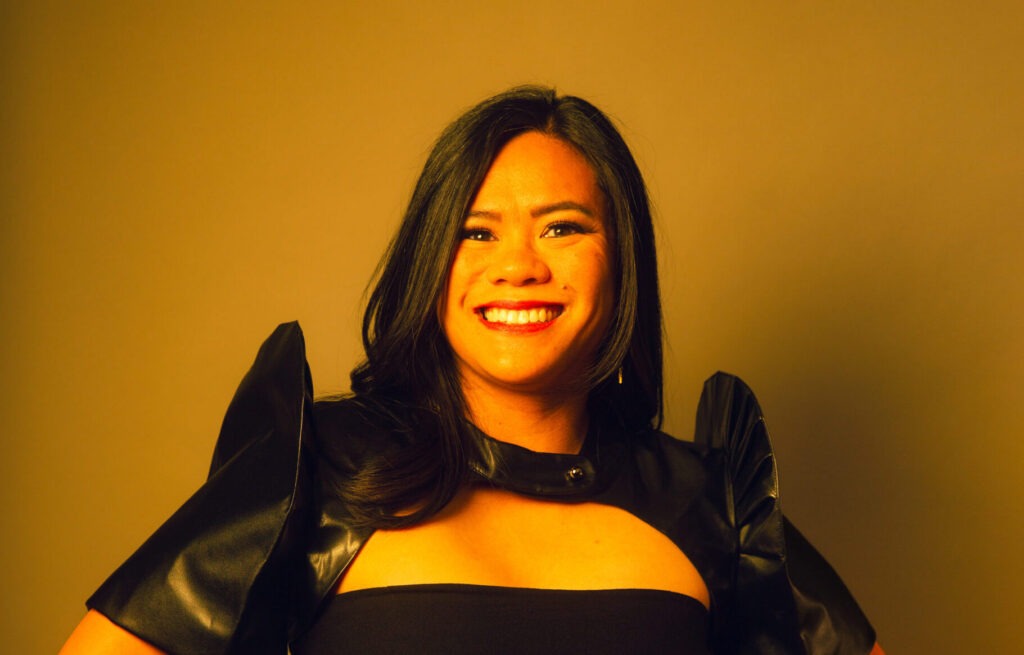Growing up on “Perry Mason” reruns, Abby Dizon-Maughan ('12) can’t recall wanting to be anything except a lawyer. The character, she says, validated her seemingly innate obstinacy and yen for argumentation.
“I wanted to be a lawyer like that guy,” she says. “He was the gotcha guy. He’d get the bad guys and figure out these problems that no one else could seem to wrap their brains around. I wanted to be a problem solver.”

Dizon-Maughan, who grew up in Kearns, Utah, has been true to her word. These days she’s an associate at Parsons Behle & Latimer in Salt Lake City, where she does commercial and civil litigation. She’s also the chairwoman of the Professional Standards Review Board of the West Valley Police Department, and she chairs the criminal justice committee of the NAACP’s Salt Lake Branch.
Her professional efforts garnered Dizon-Maughan a 2022 “Living Color Award” from Utah Business Magazine and Living Color Utah, a Salt Lake City Corporation project that supports ethnic chambers of commerce. It’s just one of many plaudits she’s received over the years. She was named a Super Lawyers Rising Star for 2017-22, and Utah Law feted her the Young Alumna of the Year in 2019.
The Living Color Award in particular served an important purpose, Dizon-Maughan says: “I felt recognized. I felt seen.”
Dizon-Maughan, of Filipino and Chinese descent, is also a role model for other lawyers of color. At her firm, she helped to create the attorney of color group, which she describes as a “safe space created by minority attorneys for minority attorneys.” It’s a far cry from the whitewashed days of “Perry Mason.” The members of the group are able to talk about microaggressions that they face – subtle, indirect or unintentional acts of discrimination – while sharing advice on how to become leaders in the legal profession.
While at Utah Law, Dizon-Maughan, a first-generation born American, was a member of the Minority Law Caucus, which focuses on promoting diversity within the legal profession and the College of Law. Dizon-Maughn recalls it as a splace where law students could discuss the idiosyncrasies of case law as minorities, and in some instances cultural outsiders.
“Probably the best example is in property law,” she says. “Many of us come from immigrant families, where the idea of owning property was so foreign that we really couldn’t comprehend it. It was another language to us. It was really a safe place for us to get together and say, ‘OK, I don’t quite understand this.’ No matter how hard we tried to be American, we still sometimes found ourselves on the outside.”
It wasn’t until she was in high school that Dizon-Maughan thought she could make her legal dreams a reality. It was then that a friend’s mom – a married mother of three – decided to enroll in law school. “She was a non-traditional student and I thought, ‘well, shoot, if she can do it, there’s got to be space for me,’” says Dizon-Maughan, herself a mom of two who lives in West Valley.
(Her father jokes that Dizon-Maughan gets her tenacity from a family descendent: early 20th-century Filipino patriot José Dizon, an important figure in fomenting the Philippine revolution against Spanish colonialism.)
Her entry into the legal world wasn’t exactly propitious. In her first job out of law school, working at a small litigation firm as a paralegal, Dizon-Maughan was summoned into a meeting by the office manager. “No joke, she said, ‘I don’t think you’re smart enough to do this. You have a very vivacious personality, and you’d be better off as a waitress,’” she recalls.
Boorish comments aside, she chooses to focus on the work at hand.
“Litigators keep the system in check,” Dizon-Maughan says. “If not for the work that we do, it would really be a free for all. People have to be held accountable for the decisions and commitments that they make. I think that principle can be applied generally. We should be a people of integrity, and if we’re not keeping our word, then what good are we to each other anyway?”
